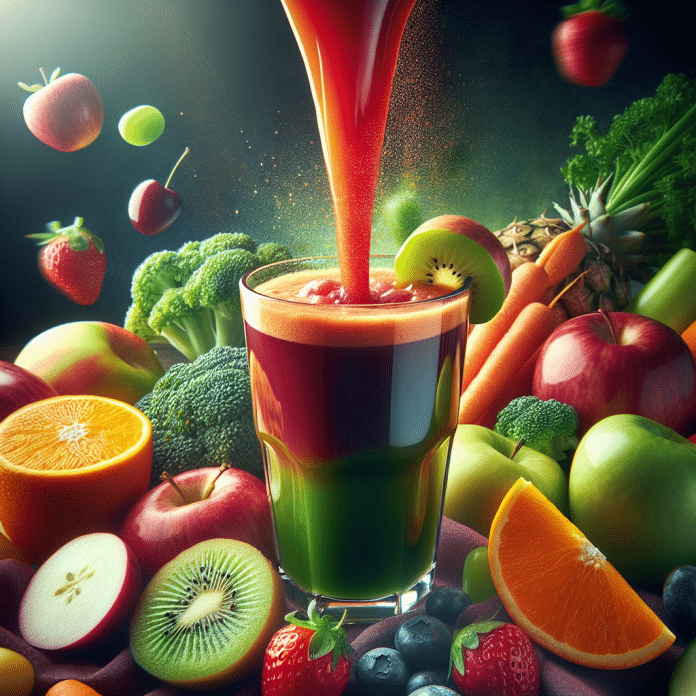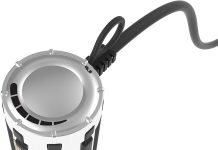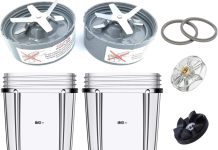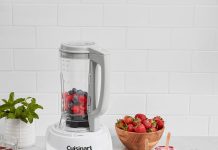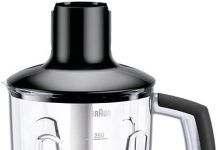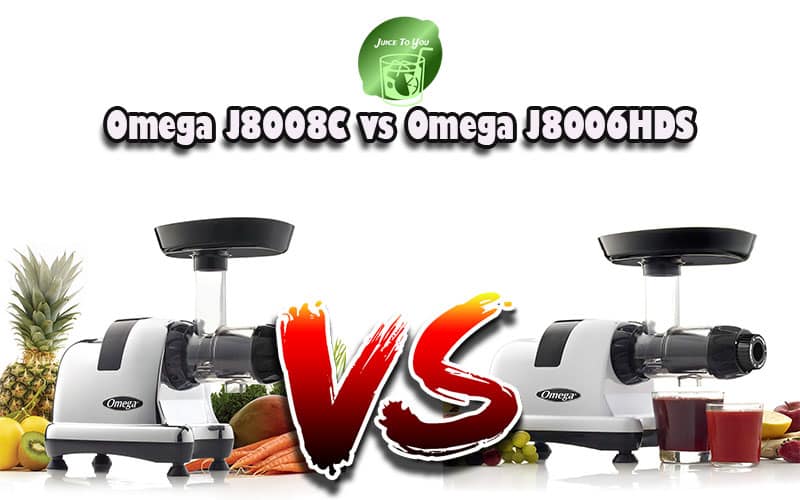Juicing for weight loss has become increasingly popular in recent years, but the question remains: is it a meal replacement or a mere supplement? With an abundance of juicing recipes flooding the internet, it’s easy to get overwhelmed and wonder if juicing alone can actually help shed those extra pounds. In this article, we will explore the benefits and drawbacks of juicing for weight loss, empowering you with the knowledge to make informed decisions about incorporating this trend into your diet. So grab your favorite fruits and vegetables, blend them up, and let’s uncover the truth about juicing for weight loss.
Review contents
Benefits of Juicing for Weight Loss
Increased intake of fruits and vegetables
One of the key benefits of juicing for weight loss is that it allows you to increase your intake of fruits and vegetables. Many people struggle to consume the recommended daily servings of fruits and vegetables, which can negatively impact weight loss efforts. By juicing, you can easily incorporate a variety of fruits and vegetables into your diet, ensuring that you are getting a wide range of essential vitamins, minerals, and antioxidants.
Reduced calorie intake
Another benefit of juicing for weight loss is that it can help reduce calorie intake. When you replace one or two meals a day with fresh, homemade juices, you are significantly reducing the number of calories consumed. This calorie deficit is crucial for weight loss as it allows your body to tap into its fat stores for energy. However, it is important to ensure that your overall calorie intake meets your body’s needs and doesn’t plunge too low, as this can be detrimental to your health.
Improved digestion
Juicing can also improve digestion, which is essential for effective weight loss. When you juice fruits and vegetables, you remove the insoluble fiber, making the nutrients more easily digestible. This can help alleviate digestive issues such as bloating, constipation, and indigestion. A healthy digestive system enables your body to better absorb the nutrients from the juice, promoting overall health and well-being.
Boosted metabolism
One of the lesser-known benefits of juicing for weight loss is its ability to boost your metabolism. Certain fruits and vegetables, such as ginger, lemon, and leafy greens, contain natural compounds that can rev up your metabolism and increase fat burning. When combined with a healthy diet and regular physical activity, juicing can help optimize your metabolism, making it easier to shed those extra pounds and maintain a healthy weight.
Potential Drawbacks of Juicing for Weight Loss
Lack of essential nutrients
While juicing can provide an array of vitamins and minerals, one of the potential drawbacks is that it may not provide all the essential nutrients your body needs. By removing the fiber from fruits and vegetables, you are also eliminating some valuable nutrients that are found in the skin and pulp. It is important to remember that juicing should not completely replace your regular meals but rather be incorporated as part of a well-rounded, nutrient-rich diet.
Low in fiber
Fiber is an essential component of a healthy diet. It aids in digestion, promotes feelings of fullness, and helps regulate blood sugar levels. Unfortunately, juicing removes the fiber from fruits and vegetables, resulting in a juice that is low in fiber. This can lead to an increased risk of hunger, overeating, and unstable blood sugar levels. To mitigate this drawback, consider adding a fiber supplement or including whole fruits and vegetables in your diet to ensure an adequate fiber intake.
Blood sugar spikes
Another potential drawback of juicing for weight loss is the potential for blood sugar spikes. When you juice fruits, their natural sugars are released into the juice, which can cause a rapid increase in blood sugar levels. This spike is often followed by a crash, leaving you feeling fatigued and hungry. To prevent blood sugar spikes, it is important to include a balance of fruits and vegetables in your juice, opting for low-glycemic options such as leafy greens, cucumber, and berries.
Not sustainable long-term
While juicing can be a beneficial tool for short-term weight loss, it is not a sustainable long-term solution. Juicing as a sole source of nutrition lacks the variety and balance that a healthy diet should have. It is crucial to incorporate solid meals and whole foods into your diet to ensure that you are meeting all of your nutritional needs. Juicing can be a valuable supplement to a healthy eating plan, but it should not be relied upon solely for extended periods.
Meal Replacement or Supplement?
Juicing as a meal replacement
One way to incorporate juicing into your weight loss plan is by using it as a meal replacement. This involves replacing one or two meals a day with fresh, homemade juices. There are several benefits to juicing as a meal replacement:
Convenience and time-saving
Preparing a juice can be quick and convenient, especially if you have a juicer or blender at home. It requires minimal preparation and cooking time compared to traditional meals. This can be particularly beneficial for busy individuals who struggle to find the time to cook healthy meals.
Reduced calorie intake
Replacing a meal with a juice can significantly reduce your calorie intake. Juices tend to be lower in calories than regular meals, making it easier to create a calorie deficit for weight loss. However, it is important to ensure that your overall calorie intake is appropriate for your individual needs and doesn’t dip too low, as this can have negative health effects.
Increased nutrition
By replacing a meal with a juice, you can increase your overall nutrition intake. Juices made from a variety of fruits and vegetables provide a wide range of vitamins, minerals, and antioxidants that are vital for optimal health. This can help support your body’s overall nutritional needs while promoting weight loss.
Balanced macronutrients
Juices can be customized to include a balance of macronutrients such as proteins, carbohydrates, and healthy fats. For example, you can add a source of protein, like Greek yogurt or a plant-based protein powder, to ensure that your juice provides you with the necessary nutrients to keep you feeling satisfied and energized until your next meal.
Juicing as a supplement
Another way to incorporate juicing into your weight loss plan is by using it as a supplement. This involves adding fresh juices to your regular diet without completely replacing solid meals. Here are some benefits of juicing as a supplement:
Additional nutrient boost
Adding fresh juices to your diet can provide an additional nutrient boost. Even if you are already consuming fruits and vegetables, juicing allows you to increase your intake and provide your body with a higher concentration of essential vitamins and minerals. This can support weight loss efforts by ensuring that your body is getting the nutrients it needs to function optimally.
Portion control
Juicing can also help with portion control. By drinking a juice instead of reaching for a snack or sugary drink, you can better control your calorie intake. Juices can be a satisfying and nutritious alternative to unhealthy, calorie-dense snacks, helping you stay on track with your weight loss goals.
Support for weight loss goals
Incorporating fresh juices into your diet can provide support for your weight loss goals. Juices can help increase feelings of fullness and satiety due to their high water and fiber content. This can prevent overeating and snacking on high-calorie, nutrient-poor foods, helping you stay on track with your calorie and nutrient goals.
Variety in diet
By adding fresh juices to your diet, you can add variety and diversity to your meals. This can make your weight loss journey more enjoyable and sustainable in the long term. Experimenting with different fruit and vegetable combinations can help keep your taste buds engaged and prevent boredom with your diet.
Factors to Consider
When deciding whether to use juicing as a meal replacement or supplement for weight loss, several factors should be considered:
Weight loss goals
Consider your weight loss goals and how incorporating juicing fits into your overall plan. If you have a significant amount of weight to lose or are looking for quick results, using juicing as a meal replacement may be more suitable. If you are looking to support your weight loss efforts while maintaining a balanced diet, juicing as a supplement may be a better choice.
Nutritional needs
Evaluate your individual nutritional needs to determine if juicing can adequately meet them. If you have specific nutrient deficiencies or dietary restrictions, it is important to consult with a healthcare professional before incorporating juicing into your weight loss plan. They can help ensure that you are getting all the necessary nutrients while avoiding any potential complications.
Lifestyle and convenience
Consider your lifestyle and how juicing fits into your daily routine. If you have a busy schedule and struggle with meal preparation, juicing can be a convenient and time-saving option. However, if you enjoy cooking and find comfort in solid meals, juicing as a supplement may be a better fit for you.
Physical activity level
Take into account your physical activity level and energy needs. If you lead an active lifestyle that requires higher calorie intake, juicing as a meal replacement may not provide you with enough energy. It is important to ensure that you are fueling your body adequately to support your activity levels and recovery.
Juicing as a Meal Replacement
When using juicing as a meal replacement, there are several benefits to consider:
Convenience and time-saving
Replacing a meal with a juice can be incredibly convenient, especially for those with a busy lifestyle. You can prepare your juice in advance and take it with you on the go, eliminating the need for cooking or meal planning. This can be a time-saving option for individuals with hectic schedules.
Reduced calorie intake
One of the key advantages of using juicing as a meal replacement is the reduced calorie intake. Juices tend to be lower in calories compared to regular meals, making it easier to create a calorie deficit for weight loss. By lowering your overall calorie intake, you can encourage your body to burn stored fat for energy, leading to weight loss.
Increased nutrition
Using juicing as a meal replacement allows you to increase your overall nutrition intake. By including a variety of fruits and vegetables in your juices, you can provide your body with a wide range of essential vitamins, minerals, and antioxidants. This can support optimal health and well-being while promoting weight loss.
Balanced macronutrients
It is important to ensure that your juices provide a balance of macronutrients to keep you satisfied and energized. Including a source of protein, such as Greek yogurt or a plant-based protein powder, can help provide the necessary amino acids to support muscle recovery and growth. Additionally, adding healthy fats, like avocado or flaxseed oil, can provide satiety and support hormone production.
Juicing as a Supplement
When using juicing as a supplement, consider the following benefits:
Additional nutrient boost
Adding fresh juices to your regular diet can provide an additional nutrient boost. By incorporating more fruits and vegetables into your meals, you can increase your intake of essential vitamins and minerals. This can support weight loss efforts by ensuring that your body has the nutrients it needs to function optimally.
Portion control
Including fresh juices in your diet can help with portion control. By drinking a juice instead of reaching for an unhealthy snack or sugary drink, you can better control your calorie intake. Juices can provide a satisfying and nutritious alternative to high-calorie, nutrient-poor foods, helping you stay on track with your weight loss goals.
Support for weight loss goals
Supplementing your regular meals with fresh juices can provide support for your weight loss goals. Juices can increase feelings of fullness and satiety due to their high water and fiber content. This can prevent overeating and snacking on high-calorie, nutrient-poor foods, helping you stay on track with your calorie and nutrient goals.
Variety in diet
Adding fresh juices to your diet can add variety and diversity to your meals. This can make your weight loss journey more enjoyable and sustainable in the long term. Experimenting with different fruit and vegetable combinations can keep your taste buds engaged and prevent boredom with your diet.
Juicing Recipes for Weight Loss
Here are a few refreshing and nutritious juicing recipes that can aid in weight loss:
Green detox juice
Ingredients:
- 1 cucumber
- 2 celery stalks
- 2 cups spinach
- 1 green apple
- 1 lemon (juiced)
Instructions:
- Wash all the ingredients thoroughly.
- Chop the cucumber, celery, and apple into smaller pieces.
- Add all the ingredients to a juicer and extract the juice.
- Mix in the freshly squeezed lemon juice.
- Pour the juice into a glass and enjoy.
Beet and carrot juice
Ingredients:
- 1 beetroot
- 2 carrots
- 1 inch ginger root
- 1 orange (peeled)
Instructions:
- Wash and peel the beetroot, carrots, ginger, and orange.
- Cut the ingredients into smaller pieces.
- Run them through a juicer to extract the juice.
- Stir the juice and pour it into a glass.
- Serve chilled and enjoy.
Watermelon and lemon juice
Ingredients:
- 2 cups watermelon chunks
- 1 lemon (juiced)
- Mint leaves for garnish (optional)
Instructions:
- Remove the seeds from the watermelon and chop it into smaller chunks.
- Juice the watermelon chunks to extract the juice.
- Mix in the freshly squeezed lemon juice.
- Pour the juice into a glass and garnish with mint leaves, if desired.
- Chill the juice in the refrigerator before enjoying.
Pineapple and cucumber juice
Ingredients:
- 1 cup pineapple chunks
- 1 cucumber
- Handful of fresh mint leaves
- 1 lime (juiced)
Instructions:
- Peel and chop the cucumber into smaller pieces.
- Juice the pineapple chunks and cucumber together.
- Stir in the freshly squeezed lime juice.
- Tear the mint leaves and add them to the juice.
- Pour the juice into a glass, add ice if desired, and enjoy.
Tips for Incorporating Juicing into a Weight Loss Plan
When incorporating juicing into your weight loss plan, consider the following tips for a successful journey:
Consult a healthcare professional
Before embarking on a juicing for weight loss plan, it is important to consult with a healthcare professional, especially if you have any underlying health conditions or are taking medications. They can provide personalized advice and guidance based on your individual needs.
Focus on whole foods
While juicing can provide a convenient way to increase your fruit and vegetable intake, it is important to remember that whole foods should still play a significant role in your diet. Incorporate a variety of whole fruits, vegetables, whole grains, lean proteins, and healthy fats to ensure a well-rounded, nutrient-rich diet.
Balance juice with solid meals
If you choose to use juicing as a meal replacement, it is crucial to ensure that your other meals are well-balanced and provide all the necessary nutrients. Opt for lean proteins, complex carbohydrates, and healthy fats to support your overall health and weight loss goals.
Stay hydrated
Juicing can be a powerful tool for weight loss, but it is essential to stay hydrated throughout the day as well. Remember to drink plenty of water in addition to your juices to keep your body hydrated and functioning optimally.
Conclusion
In conclusion, juicing can be a valuable tool for weight loss when used strategically and with consideration of individual needs. Whether you choose to use juicing as a meal replacement or supplement, there are benefits to be gained. Juicing can increase your intake of fruits and vegetables, reduce calorie intake, improve digestion, and boost metabolism. However, it is important to be aware of potential drawbacks such as a lack of essential nutrients, low fiber content, blood sugar spikes, and the need for a balanced, sustainable approach. Consider factors such as weight loss goals, nutritional needs, lifestyle, and physical activity level when deciding how to incorporate juicing into your weight loss plan. With the right approach and mindset, juicing can be a delicious and nutritious addition to a comprehensive weight loss journey.

